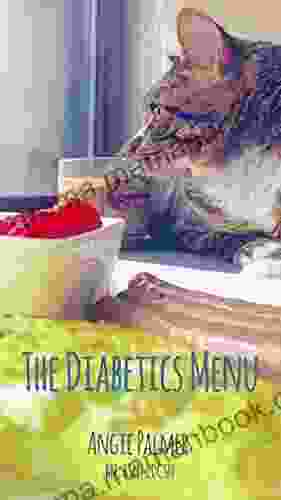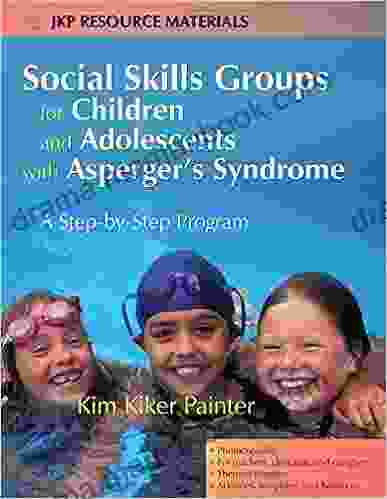Social Skills Groups for Children and Adolescents with Asperger Syndrome: A Comprehensive Guide

4.4 out of 5
| Language | : | English |
| File size | : | 1555 KB |
| Text-to-Speech | : | Enabled |
| Screen Reader | : | Supported |
| Word Wise | : | Enabled |
| Print length | : | 176 pages |
Asperger Syndrome (AS) is a neurodevelopmental disorder characterized by difficulties in social interaction and communication. Children and adolescents with AS may struggle with understanding social cues, initiating and maintaining conversations, and forming relationships. Social skills groups provide a structured and supportive environment for these individuals to learn and practice essential social skills.
Benefits of Social Skills Groups
Social skills groups offer numerous benefits for children and adolescents with AS, including:
* Improved social interaction skills: Groups provide opportunities for participants to engage in social situations and practice interacting with peers in a safe and controlled environment. They learn how to initiate conversations, maintain eye contact, and respond appropriately to social cues. * Enhanced communication skills: Group activities focus on improving communication skills, such as active listening, turn-taking, and expressing thoughts and feelings clearly. Participants learn how to communicate effectively in various social situations. * Increased self-awareness and self-esteem: Groups foster self-awareness by providing participants with feedback and support. They learn about their own social strengths and weaknesses, and develop strategies for improving their social skills. This can lead to increased self-confidence and self-esteem. * Reduced anxiety and social isolation: Social skills groups provide a supportive environment where participants can connect with others who share similar challenges. This can reduce feelings of anxiety and social isolation, and promote a sense of belonging. * Improved academic and occupational outcomes: Strong social skills are essential for success in school, work, and personal relationships. Social skills groups can help children and adolescents with AS develop the skills they need to navigate social situations and achieve their academic and occupational goals.
Types of Social Skills Groups
There are various types of social skills groups tailored to the specific needs of children and adolescents with AS. Common types include:
* Cognitive-Behavioral Therapy (CBT) groups: These groups focus on identifying and changing negative thoughts and behaviors that interfere with social skills. * Social Thinking groups: These groups teach participants about social thinking concepts, such as perspective-taking, inferencing, and social cues. * Skill-Based Training groups: These groups provide explicit instruction and practice on specific social skills, such as starting conversations, maintaining eye contact, and interpreting body language. * Peer-Mediated groups: These groups involve typically developing peers who serve as role models and provide support for participants with AS. * Multimodal groups: These groups combine elements from different approaches, such as CBT, social thinking, and skill-based training.
Effectiveness of Social Skills Groups
Research has consistently demonstrated the effectiveness of social skills groups for children and adolescents with AS. Studies have shown that participation in groups leads to improvements in:
* Social interaction skills * Communication skills * Self-awareness and self-esteem * Anxiety and social isolation * Academic and occupational outcomes
The effectiveness of social skills groups is likely due to several factors, including:
* Structured and supportive environment: Groups provide a safe and structured environment where participants can practice social skills without fear of judgment or criticism. * Peer support and feedback: Groups offer participants the opportunity to interact with peers who share similar challenges and provide valuable feedback and support. * Expert guidance: Groups are typically led by trained facilitators who provide expert guidance and support to participants. * Cognitive and behavioral strategies: Groups teach participants cognitive and behavioral strategies for improving their social skills and managing social challenges.
Selecting a Social Skills Group
When selecting a social skills group for a child or adolescent with AS, it is important to consider several factors, including:
* Age and developmental level: Groups should be designed for the specific age and developmental level of the participants. * Type of group: The type of group should be tailored to the individual's specific needs and goals. * Facilitator experience and qualifications: The facilitator should have experience working with children and adolescents with AS, and should be trained in evidence-based social skills interventions. * Group size and structure: Groups should be small enough to provide individual attention to participants, but large enough to encourage peer interaction. * Duration and frequency: Groups should meet regularly over a period of time to allow for consistent practice and skill development.
Social skills groups are a valuable resource for children and adolescents with Asperger Syndrome. They provide a safe and supportive environment for individuals to learn and practice essential social skills. Research has consistently demonstrated the effectiveness of social skills groups in improving social interaction skills, communication skills, self-awareness, and self-esteem. By carefully selecting a group that meets the individual's needs, parents and professionals can help children and adolescents with AS develop the social skills they need for success in school, work, and personal relationships.
4.4 out of 5
| Language | : | English |
| File size | : | 1555 KB |
| Text-to-Speech | : | Enabled |
| Screen Reader | : | Supported |
| Word Wise | : | Enabled |
| Print length | : | 176 pages |
Do you want to contribute by writing guest posts on this blog?
Please contact us and send us a resume of previous articles that you have written.
 Top Book
Top Book Novel
Novel Fiction
Fiction Nonfiction
Nonfiction Literature
Literature Paperback
Paperback Hardcover
Hardcover E-book
E-book Audiobook
Audiobook Bestseller
Bestseller Classic
Classic Mystery
Mystery Thriller
Thriller Romance
Romance Fantasy
Fantasy Science Fiction
Science Fiction Biography
Biography Memoir
Memoir Autobiography
Autobiography Poetry
Poetry Drama
Drama Historical Fiction
Historical Fiction Self-help
Self-help Young Adult
Young Adult Childrens Books
Childrens Books Graphic Novel
Graphic Novel Anthology
Anthology Series
Series Encyclopedia
Encyclopedia Reference
Reference Guidebook
Guidebook Textbook
Textbook Workbook
Workbook Journal
Journal Diary
Diary Manuscript
Manuscript Folio
Folio Pulp Fiction
Pulp Fiction Short Stories
Short Stories Fairy Tales
Fairy Tales Fables
Fables Mythology
Mythology Philosophy
Philosophy Religion
Religion Spirituality
Spirituality Essays
Essays Critique
Critique Commentary
Commentary Glossary
Glossary Bibliography
Bibliography Index
Index Table of Contents
Table of Contents Preface
Preface Introduction
Introduction Foreword
Foreword Afterword
Afterword Appendices
Appendices Annotations
Annotations Footnotes
Footnotes Epilogue
Epilogue Prologue
Prologue Desiree Holt
Desiree Holt Mark J Curry
Mark J Curry Tony Hillerman
Tony Hillerman Homer Hickam
Homer Hickam Dennis Herrick
Dennis Herrick Stacy Drumgoole
Stacy Drumgoole Amy Lowell
Amy Lowell Amy Shields
Amy Shields Shell Isenhoff
Shell Isenhoff Amy Rafferty
Amy Rafferty Pema Chodron
Pema Chodron Kari Whitehead
Kari Whitehead Ruth Padel
Ruth Padel Amy Mackelden
Amy Mackelden D K Steffey
D K Steffey Amy Myers Md
Amy Myers Md Dave Holderread
Dave Holderread Christopher Cartwright
Christopher Cartwright Michael Pasquier
Michael Pasquier Cicely Mary Barker
Cicely Mary Barker
Light bulbAdvertise smarter! Our strategic ad space ensures maximum exposure. Reserve your spot today!

 Brayden ReedMusic and Conflict: Salwa El Shawan Castelo Branco's Journey of Resilience...
Brayden ReedMusic and Conflict: Salwa El Shawan Castelo Branco's Journey of Resilience...
 Jan MitchellAdventures in Contentment: A Journey to Find True Fulfillment in the Simple...
Jan MitchellAdventures in Contentment: A Journey to Find True Fulfillment in the Simple... Douglas FosterFollow ·11.9k
Douglas FosterFollow ·11.9k Charles DickensFollow ·14.1k
Charles DickensFollow ·14.1k Kazuo IshiguroFollow ·19.9k
Kazuo IshiguroFollow ·19.9k Roy BellFollow ·15.2k
Roy BellFollow ·15.2k Miguel NelsonFollow ·9.6k
Miguel NelsonFollow ·9.6k Clarence BrooksFollow ·13.2k
Clarence BrooksFollow ·13.2k Robert Louis StevensonFollow ·7.3k
Robert Louis StevensonFollow ·7.3k Hunter MitchellFollow ·12k
Hunter MitchellFollow ·12k

 Jesus Mitchell
Jesus MitchellThe Diabetics Menu: Your Low Carb Options
If you're living with diabetes, you may be...

 Danny Simmons
Danny SimmonsThe Sam Reilly Collection: A Treasure Trove of...
In the realm of...

 Vic Parker
Vic ParkerThe Shepherdess of Siena: The Extraordinary Life of Saint...
Catherine of Siena, known as the...

 Christian Carter
Christian CarterDive into the Mystical World of Meraki Syren: A Literary...
A Literary Odyssey Through the Depths...

 Eric Hayes
Eric HayesSimplest Method on How to Remove Credit Cards from Your...
Do you have multiple credit cards...
4.4 out of 5
| Language | : | English |
| File size | : | 1555 KB |
| Text-to-Speech | : | Enabled |
| Screen Reader | : | Supported |
| Word Wise | : | Enabled |
| Print length | : | 176 pages |










